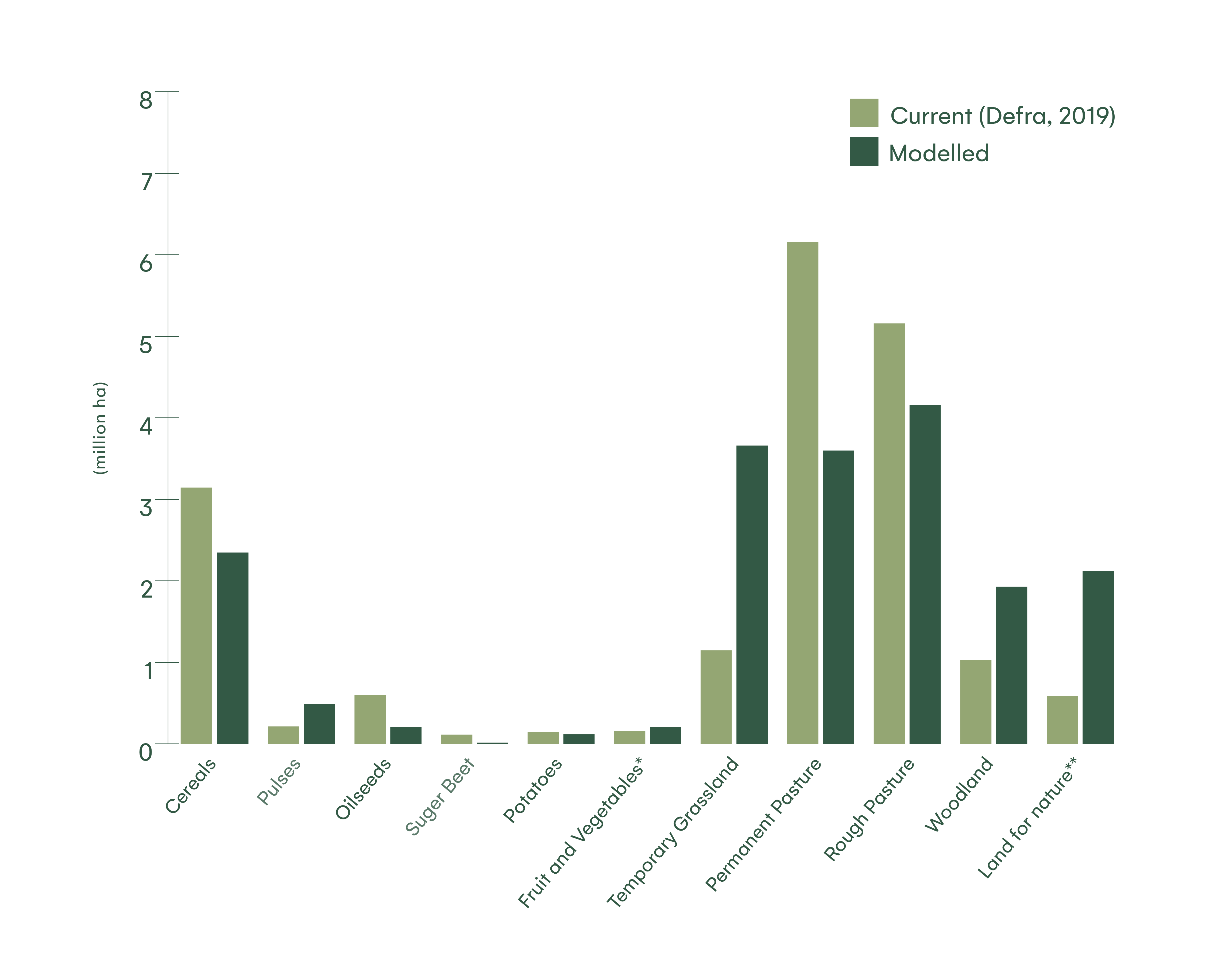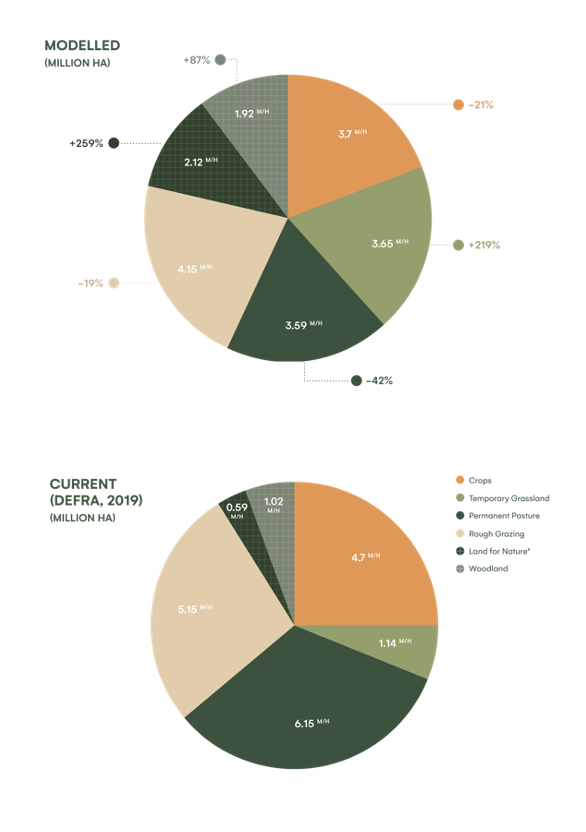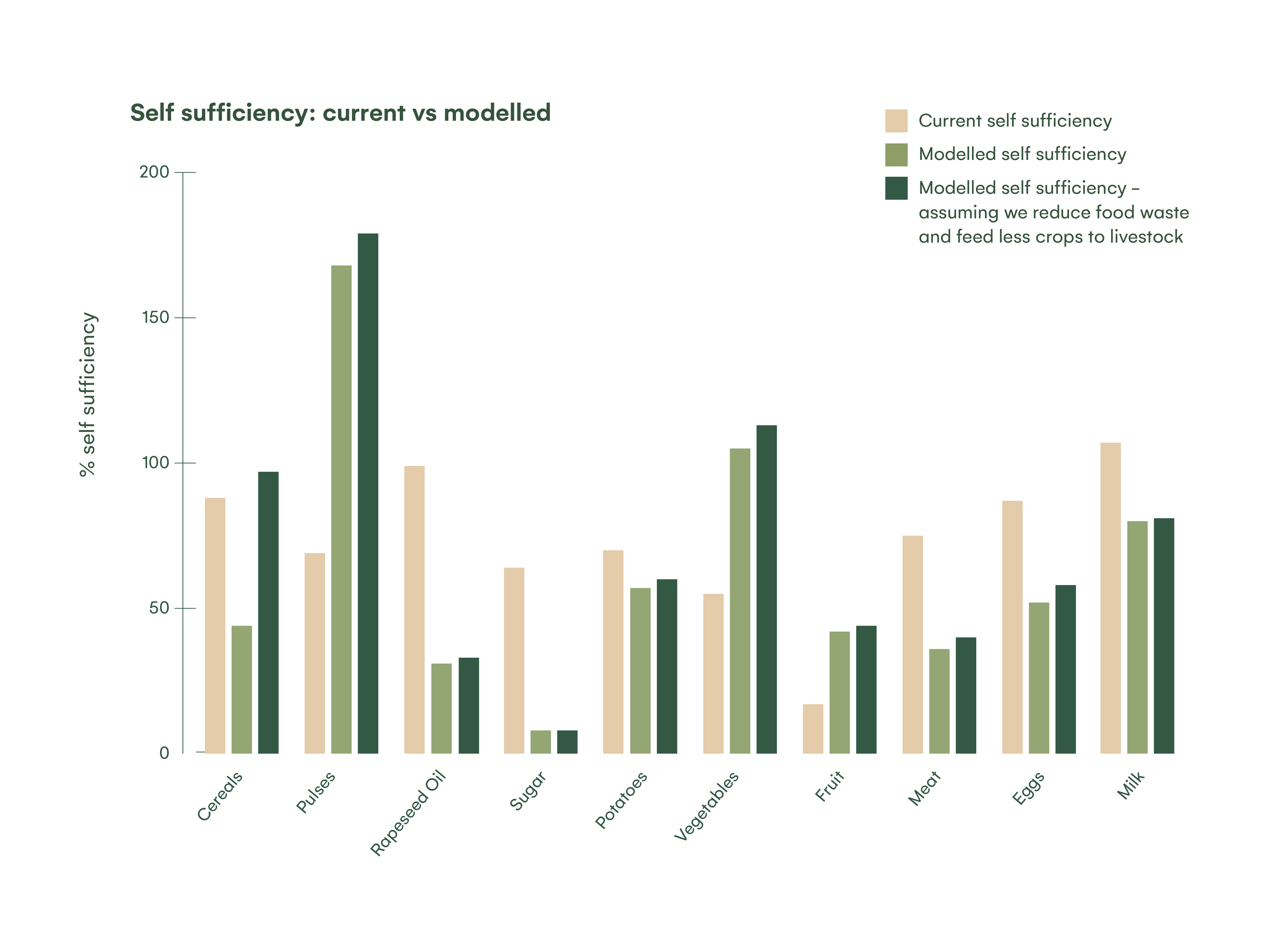A UK-wide transition to sustainable and regenerative farming
practices, to tackle the climate, nature and public health crises,
could produce enough food to maintain and potentially even
improve current levels of self-sufficiency, provided we ate
differently, ate less and cut food waste.
These are the key conclusions of our
report, Feeding Britain from the Ground Up,
which explores the potential impacts on
land use, food production and individual
diets of a UK-wide transition to sustainable
farming based on biological principles.


By aligning our diets to what the UK could sustainably produce and eating according to the recommended intake of calories and key nutrients, we would be able to maintain or potentially even improve on current levels of self-sufficiency.

Our short film series summarises the key findings of the Feeding Britain report and showcases a range of sustainable and regenerative farms from across the UK.
Download the report
practices, to tackle the climate, nature and public health crises,
could produce enough food to maintain and potentially even
improve current levels of self-sufficiency, provided we ate
differently, ate less and cut food waste.
These are the key conclusions of our
report, Feeding Britain from the Ground Up,
which explores the potential impacts on
land use, food production and individual
diets of a UK-wide transition to sustainable
farming based on biological principles.
Impacts on food production
If the UK were to switch to sustainable farming methods:- We would produce double the amount of fruit and vegetables.
- Grain production would halve due to a phase out of chemical inputs and less land being used for intensive crop production.
- Much less grain would be fed to livestock and intensive livestock production would be phased out, resulting in a 75% decline in pork and chicken production.
- We would produce double the amount of pulses (peas and beans).
- Beef and lamb, reared mainly on grass, would continue to be produced at similar quantities as today and would become our staple meat.

Impacts on land use
- Mixed farming: There would be a general shift to mixed farming, resulting in the reintroduction of grassland and grazing livestock in arable areas (mainly in the south and east) and cropping in some areas which are currently dominated by grassland in the north and west of Britain.
- More land for trees and nature: We assumed that woodland cover would increase by close to a million hectares, and many more trees would be integrated into the farmed landscape through agroforestry. There would also be more land for nature, complementing the improvements to farmland biodiversity enabled by the shift to biologically based farming.

Impacts on diets and self-sufficiency
Our modelling suggests that a nationwide shift to sustainable farming would result in an increased availability of seasonal vegetables, fruit and pulses; slightly less beef and lamb and about a third less dairy, produced from high-welfare, mainly pasture-based systems; significantly less chicken, eggs and pork – with the remaining produce coming from free-range systems with high standards of welfare; and roughly the same amount of grain-based foods, but from a greater variety of cereals including more oats and rye.By aligning our diets to what the UK could sustainably produce and eating according to the recommended intake of calories and key nutrients, we would be able to maintain or potentially even improve on current levels of self-sufficiency.

Our short film series summarises the key findings of the Feeding Britain report and showcases a range of sustainable and regenerative farms from across the UK.
Download the report





